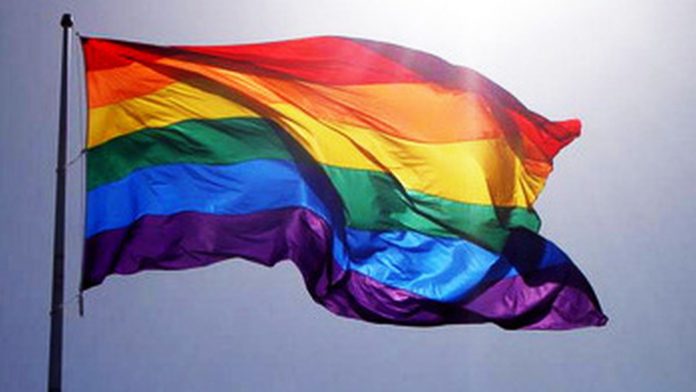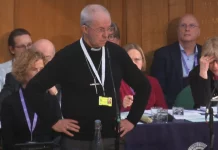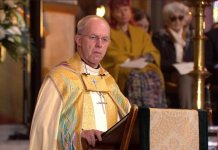Despite appearances, Church of England conservatives have not won a victory after the bishops announced that new services of blessing for same-sex couples now require two-thirds majorities in General Synod. The services are set to come into use anyway after November’s Synod.
The announcement from Church House Westminster on October 9, after the bishops made their decision on the legal route they are now pursuing, certainly highlighted the bishops’ commitment to get the new services into use.
Under the headline “Prayers of Love and Faith: Bishops agree next steps to bring to Synod” with the sub-head, “House of Bishops agrees to commend Prayers of Love and Faith”, the statement declared:
“The Church of England’s House of Bishops has agreed in principle that prayers asking for God’s blessing for same-sex couples – known as Prayers of Love and Faith – should be commended for use.”
After Synod voted to back the new services in February, the bishops faced the problem of finding a legal route to authorising the liturgy under the CofE’s Canons (rules). Conservatives argued that because the services involved a change to the Church’s core doctrine they should only be introduced under Canon B2, which requires two-thirds majorities in each of the three Houses of Synod – bishops, clergy and laity.
Though the same-sex blessings were supported by the overwhelming majority of bishops in February, they only got approval by simple majorities in the Houses of Clergy and Laity, not the two thirds necessary under Canon B2.
The Church House press release explained: “The bishops will bring proposals to General Synod next month which will pave the way for a process that would lead to the authorisation of these special services under Canon B2.
“This process, expected to take until 2025, would involve consultation with every diocese and require approval by General Synod.
“Bishops gave serious consideration to an alternative legal process which could have enabled special services to be authorised almost immediately – but temporarily – (under Canon B5A). This would still have required a further process for the services to be authorised permanently (under Canon B2) by Synod.”
The Church Times has clearly had a high-level briefing to the effect that clergy who wish to use the new liturgy would be able to do so after November’s Synod. Its news report asserted:
“The requirement of a full synodical process for the authorisation of special services in which the prayers are featured does not mean that the prayers themselves cannot be used before this time: Canon B5 allows for ministers to use their discretion to make alterations to existing service.”
Read it all at Christian Today
Julian Mann is a former Church of England vicar, now an evangelical journalist based in Lancashire.










